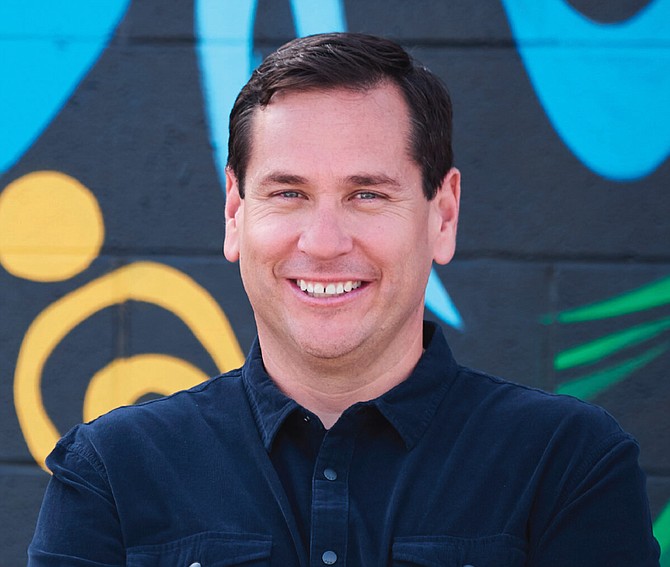Fostering Inclusivity in Nevada’s Electoral Process: Enhancing Voting Accessibility for Tribal Nations
In a powerful demonstration of commitment to fostering inclusion and equity in democracy, Nevada Secretary of State Cisco Aguilar has launched a statewide “listening tour” to address voting challenges faced by the state’s tribal nations. This initiative emphasizes the necessity of making elections accessible and empowering indigenous communities to fully participate in the democratic process. By focusing his efforts on understanding the unique barriers these communities face, Aguilar seeks to make lasting changes that strengthen representation and trust in the electoral system.
Nevada is home to 28 tribal nations, each with its own distinct cultural heritage and history. Historically, indigenous communities across the United States have encountered significant obstacles to voting. For many tribal citizens, geographic isolation, limited infrastructure, restricted access to polling places, and lack of voter education have created systemic inequities in their representation at the ballot box. These barriers not only undermine the principle of equal access to democracy but also limit the ability of indigenous populations to shape political decisions that deeply impact their communities. Aguilar’s effort to meet directly with tribal leaders and citizens is a critical step toward remedying these issues and ensuring their voices are heard.
The listening tour signifies a desire to build mutual trust and collaboration between the Nevada Secretary of State’s office and the tribal nations. By listening to tribal members’ personal stories, challenges, and suggestions, Secretary Aguilar gains valuable insights into the obstacles that hinder voting access. Efforts taken to address these hurdles reflect a broader commitment to equity and inclusivity, ensuring that the democratic process works for all Nevadans. This approach is not merely about identifying temporary fixes to logistical issues but aims to cultivate a voting system that fully supports indigenous participation for years to come.
Barriers to voting among indigenous communities often extend beyond mere logistics. Factors like inadequate transportation, a lack of polling stations near reservations, cultural nuances, or limited access to voter outreach programs all contribute to low voter turnout. Aguilar’s tour brings these issues to the forefront by encouraging open dialogue with the people directly impacted by such barriers. Through these discussions, actionable solutions such as relocating polling sites closer to indigenous communities, introducing innovative voting methods like mobile polling centers, and increasing voter education resources can be explored. These measures are essential for creating a voting process that feels equitable and accessible to tribal citizens.
The initiative is especially timely, given the nationwide focus on addressing voter suppression and improving participation rates in historically marginalized communities. Indigenous groups have long faced underrepresentation in elections, not only in Nevada but across the United States. Aguilar’s deliberate focus on tribal nations underscores the recognition that their unique circumstances merit tailored solutions rather than one-size-fits-all policies. By prioritizing these concerns, Aguilar is setting a precedent that other states could emulate, shifting the national conversation toward ensuring fairness and equity for all voters.
One of the most significant aspects of the listening tour lies in its potential for long-term impact. As Aguilar meets tribal leaders, gathers input, and learns about specific needs, he is poised to initiate legislative proposals, administrative adjustments, and partnerships to address systemic inequities. These partnerships could pave the way for innovative reforms and progressive policies aimed at increasing indigenous voter turnout, reinforcing their confidence in the electoral system. Transparent communication and active engagement leave the door open for collaboration on future initiatives that serve the needs of tribal nations.
Ultimately, this initiative reflects a deeper principle at the heart of democracy: every vote matters, and a functioning democracy must represent all of its citizens. By working to make voting easier and more accessible for tribal populations, Nevada moves closer to achieving a more inclusive and equitable political system. Providing solutions to long-standing inequities means Nevada’s tribal citizens can engage in decisions that directly affect their communities, helping to pave the way for broader representation and accountability in governance.
Moreover, the listening tour has the potential to encourage civic optimism and foster greater civic participation. When indigenous populations see their concerns taken seriously and addressed with meaningful policies, they gain renewed confidence in their ability to shape the future. By taking an inclusive and proactive approach, Nevada underscores the importance of empowering all its citizens to have their voices heard at the ballot box.
In many ways, Secretary Aguilar’s initiative goes beyond Nevada; it can serve as a model for states nationwide. By actively addressing the barriers faced by tribal communities, this campaign illustrates how local governments can champion equity and inclusion in the democratic process. If successful, it offers a roadmap for other states seeking to empower historically marginalized groups and build a more robust, inclusive democracy. In doing so, Aguilar’s listening tour is not just a step toward stronger tribal representation in elections but a beacon of hope for a country striving for a fairer, more representative electoral system.
